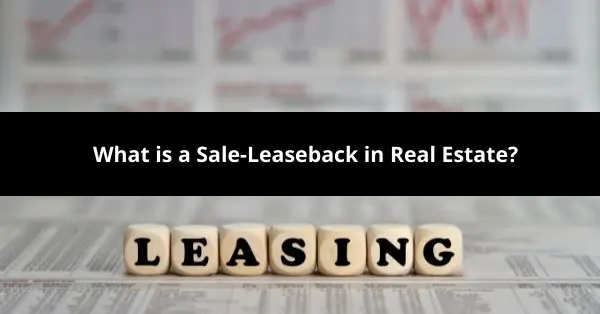A sale-leaseback, also known as a leaseback agreement, is a financial agreement that allows a homeowner to sell their property to someone else and then lease it back from the new owner. A leaseback agreement is a smart idea when you need to free up some cash while still getting to use and live in your house.
For example, if you need money quickly to pay for some unforeseen debt, like medical expenses, but still want to live in your home, a sale-leaseback could be the perfect solution for you. Leasebacks can also make great options for retired seniors that are strapped for cash and do not qualify for a reverse mortgage.
In general, anyone struggling for money, whether it’s from medical bills, credit card debt or recent unemployment, can leverage a leaseback agreement to free up cash and keep their home. But they aren’t always the best option as you are no longer the owner and still risk losing everything.
If you’re thinking about a sale-leaseback agreement, then it’s important to understand how the process works and the pros and cons of a leaseback in real estate.
How a Leaseback Agreement Works
A sale-leaseback agreement works when you as a seller exchange your property to a new owner and lease it back from the buyer. As a result, you free up any cash they invested in your property, and the buyer gets to profit off of your payments.
In general, there are two types of leases in a leaseback agreement:
- Triple-Net Lease (NNN Lease): You are responsible for all taxes, insurance, and common area maintenance of the property.
- Hands-Off Lease: You make changes to the property as you wish.
When negotiating a leaseback agreement, you and the buyer must be up-front with your intent. Therefore, both parties can assure their commitment to the agreement and reduce both of your risks.
Pro-tip: If you’re negotiating a sale-leaseback agreement you can try to place a “right of first refusal” clause in case you receive a better offer from another buyer. This way, you can get the most for your property or that extra peace-of-mind if a more trustworthy buyer comes along.
With that said, there are advantages and disadvantages to this approach that you should be aware of.
Pros and Cons of a Leaseback
Pros of a Leaseback Include:
- Being able to live in or occupy the property.
- You free up any cash tied up in the property.
- There may be more tax write-offs available in a lease, but you’ll need to contact a licensed tax expert where you live to know for sure.
- You’ll be able to avoid some selling fees like real estate agent commissions, appraisal fees, etc… from the sale of your property.
- Both parties can set their terms for the agreement giving you flexibility.
Cons of a Leaseback Include:
- Once the lease ends, you may have to leave the property.
- Depending on the lease, you will be unable to alter the property as you would if you owned it.
- Leasebacks can be risky if you don’t trust the other party as you can lose the property vs. gain ownership again.
With that said, the benefits of leaseback sales often outweigh the negatives. Leasebacks allow you to free up cash and in some cases avoid foreclosure.
Can a Leaseback Help Me Avoid Foreclosure?
Yes, you can avoid foreclosure using a leaseback agreement to sell your home to a cash buyer who pays off your lender and then leases the home back to you. Under this agreement, you can avoid foreclosure, keep your home, and in some cases even make some money off of the sale of your home. The sale-leaseback agreement can be done quickly and benefit all parties involved, including your lender.
And now you know what a leaseback agreement is, the benefits and negatives of this type of deal, and if a sale-leaseback agreement is the right option for you.


